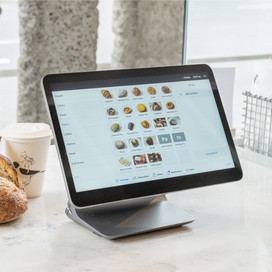Teams that don’t work together well will struggle to perform. Sometimes teamwork comes naturally to a group; other times, building a motivated and collaborative team can require some targeted interventions.
Whether your team is thriving or merely surviving, here are some tips to nurture a healthy team culture in your workplace.
1. Communicate consistently
Effective communication is at the heart of great teamwork. Strong leaders communicate consistently with each of their team members to ensure everyone has the same information. And great teams communicate well, with employees happy to share ideas, ask for feedback or support, brainstorm together, and sometimes disagree.
Skilled communicators are also good listeners who build trust by taking the time to build relationships with their colleagues and respecting others’ perspectives and opinions. They may not always agree but can work through differences to find a solution and keep moving forward as a cohesive team.
Some tips for effective communication are:
- Be clear: Think about the message you want to leave your team with before you speak. Use as little jargon as possible when you talk with your team, and ensure you explain any acronyms as you use them.
- Be brief: Whether you’re communicating verbally or in writing, keep your message concise. Stay on topic and keep it simple to engage your team.
- Consider the channel: The best communication channel for your message will depend on what that message is. If it’s a general team update that needs to be shared immediately and everyone is onsite, a quick verbal briefing may be the most appropriate approach. If your team works in shifts – in retail or hospitality, for example – it’s important to communicate in a way that ensures everyone gets the same message, so email or a blast through your team management software is a good option.
- Make yourself available: Your team shouldn’t have to wait for a weekly meeting to speak to or hear from you. Let them know they can come to you and make yourself available throughout the week. Encourage informal meetings, information sharing, and huddles between team members to build collaboration and capability.
- Use communication and collaboration tools: The number and popularity of online communication and collaboration tools has exploded due to the massive shift to remote working driven by COVID-19. The right tools for your workplace will depend on your business size, style and number of employees.
Team management software is a popular choice to drive stronger teamwork in retail and hospitality businesses. Tools like Square Team Management integrate with your point of sale system to support better communication and help you to manage your employees more efficiently and effectively.
2. Establish a clear team purpose
If your team doesn’t understand its purpose and how its daily activities support the organisation to achieve its goals, it can be tough to keep them motivated. A team purpose that everyone understands provides your people with clarity, meaning and direction and can foster better decision making.
When people are clear and aligned about why they’re doing what they’re doing and the steps they need to follow to get there, you’re on the path to becoming a high-performance team.
3. Provide clarity around individual roles and responsibilities
Along with a clear team purpose, your team members must understand each individual’s role and responsibilities; any ambiguity or overlap makes it difficult for people to work together productively. Roles and responsibilities should be documented and available to each member of the team.
Explaining how an individual fits into the wider team and how workflows, delegation and decision making happens should be part of your employee onboarding process. The entire team should revisit and review roles and responsibilities regularly, particularly if there’s been a significant change to team size or duties or the division of work is causing conflict.
4. Recognise and reward your people
Reward and recognition programs are an effective way to build happier, stronger teams. Many businesses use a combination of individual and team-based rewards to recognise both individual team members’ performance and team achievements.
Recognising and rewarding team members doesn’t need to focus on purely financial rewards. Consider the following options:
- A handwritten thank you note
- Team meal or drinks offsite
- A wellness afternoon with massages and pampering
- A bonus day off
- Lunch with an individual or small group
- An experience voucher
- An individual or team trophy
5. Encourage informal social events
Team building activities can be contentious. It’s impossible to find something that everyone is interested in, and they can often feel forced. Rather than imposing a traditional team-building activity on your team, let informal social events happen organically – just getting together as a group away from the office can really strengthen relationships.
Commit to a low-key social event (lawn bowls, trivia or similar) every quarter or six months – it will save you money and deliver better results in terms of teamwork and employee morale.
Maybe your team is already performing well in some of these areas but could do with improvement in others. Perhaps roles and responsibilities are clear, but you could invest more time in aspects like communication, recognition and building a stronger team culture through holding regular social events.
Chances are, you’ll know where you might be falling down. If not, ask your team! Communication is the foundation of great teamwork.
![]()











